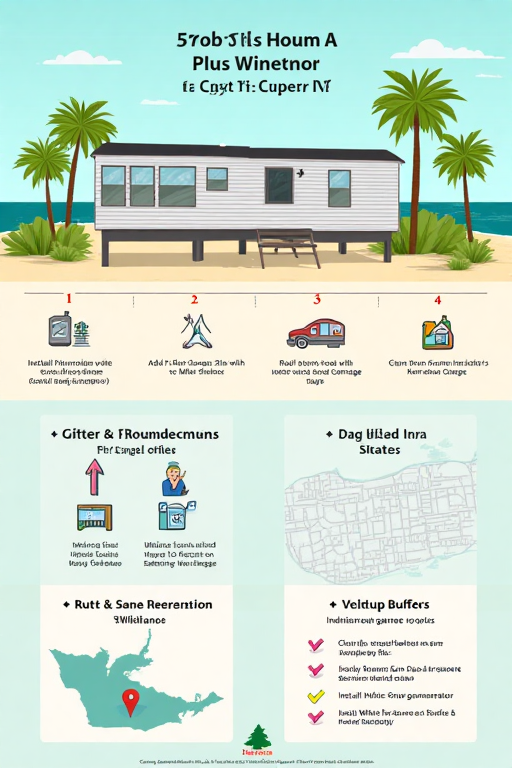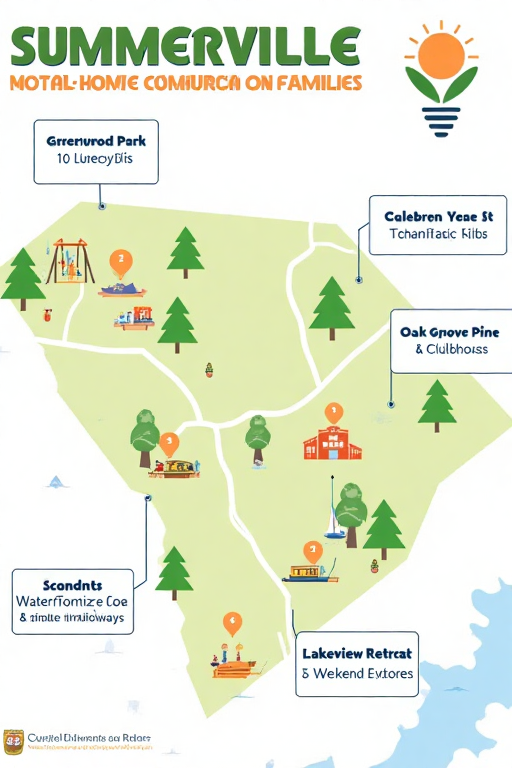Mobile Home vs. Tiny Home: Which Is Better for South Carolina Residents?
Your Comprehensive Guide from Faith Mobile Home Solutions
Introduction
Choosing between a mobile home and a tiny home is a pivotal decision for South Carolina residents seeking affordable, flexible housing. Mobile homes and tiny homes both offer compact living, but differ in cost, financing, zoning, customization, maintenance, and lifestyle fit. This 7,000‑word guide from Faith Mobile Home Solutions dives deep into each factor, empowering you to make an informed choice tailored to South Carolina’s unique market and climate.
Cost Comparison
Purchase Price
Average mobile home: $50,000–$100,000 for a new single‑wide; larger models up to $200,000. Tiny home: $40,000–$100,000 depending on build quality, materials, and customization.
Land & Site Prep
Mobile home parks often include site prep in lot rent. Buying land: $5,000–$50,000+ depending on location. Tiny homes on wheels avoid permanent site costs but may require legal pad foundations or tie‑downs.
Utilities & Connections
Mobile homes: standard hookups for water, sewer, electric in parks. Tiny homes: off‑grid options (solar, composting toilets) can reduce bills but add upfront costs.
Insurance & Taxes
Mobile home insurance & property taxes vary by county; typically lower than site‑built homes. Tiny homes taxed as RVs or ADUs may carry different rates and insurance classifications.
Financing & Equity
Loan Availability
Mobile home loans: FHA Title I & II, chattel loans, personal property lending. Tiny home loans: personal loans, RV loans, few specialized lenders—higher rates, shorter terms.
Equity Building
Mobile homes on owned land can build equity like traditional homes. Leased‑land mobile homes and tiny homes on wheels generally appreciate limitedly, making them less ideal for long‑term investment.
Refinancing Options
Refinance a mobile home with traditional mortgage products; tiny homes refinancing is rare, often requiring personal equity loans or credit lines.
Land & Zoning
Mobile Home Parks vs. Private Land
Parks offer convenience but rules on age, pets, structures. Private land requires site prep, septic/permitted hookups, and compliance with county mobile home ordinances.
Tiny Home Zoning
SC counties vary: some treat tiny homes as RVs, permitting them only in RV parks; others allow ADUs under specific zoning. Permitting can be the biggest hurdle.
HOA & Neighborhood Restrictions
Both housing types may face deed restrictions; thorough research of covenants and local regulations is critical before purchase.
Lifestyle & Space
Square Footage
Mobile homes: 600–1,200+ sq ft (single‑ to triple‑wide). Tiny homes: 100–400 sq ft, efficient multi‑use design.
Customization
Mobile homes: factory options, add‑ons, room expansions. Tiny homes: fully custom builds allow unique layouts, lofts, and eco‑features.
Mobility
Tiny homes on wheels can relocate easily; mobile homes require professional movers and site permits, making them more stationary once sited.
Community & Amenities
Parks often feature communal amenities (clubhouse, pool). Tiny home communities are emerging but less common in SC; DIY tiny homeowners often spaced on private land.
Maintenance
Upkeep Costs
Mobile homes: annual maintenance ~1–2% of value. Tiny homes: depends on build quality; fewer systems but specialized repairs can be costly.
Systems & Lifespan
Mobile homes have standard HVAC, plumbing built to HUD code; tiny homes may use RV‑grade fixtures or residential‑grade based on foundation type.
Durability
Mobile homes built to HUD standards can last 30+ years with upgrades. Tiny homes’ longevity depends on materials and adherence to residential building codes when placed on foundations.
Resale Value
Mobile homes on owned land tend to hold or appreciate value with market trends. Tiny homes on wheels often depreciate like vehicles; tiny homes on foundations treated as real estate may appreciate.
Environmental Impact
Energy Efficiency
Both can be built to high efficiency: tiny homes benefit from small envelope; mobile homes increasingly offered ENERGY STAR models.
Sustainable Materials
Tiny homes often use reclaimed or green materials; mobile homes have industrialized production but growing use of eco‑friendly options.
Land Footprint
Tiny homes minimize land use; mobile homes require more space but clustering in parks reduces per‑unit land consumption.
Legal & Regulatory Considerations
- HUD Code compliance for mobile homes
- Local building permits for ADU tiny homes
- Setback, foundation, tie‑down requirements
- Zoning variances and conditional use permits
Expert Tips from Faith Mobile Home Solutions
- Assess your long‑term plans: mobility vs. equity growth.
- Engage local planners early to navigate zoning.
- Compare total cost of ownership, not just purchase price.
- Inspect manufacturer and builder reputations thoroughly.
- Consider hybrid options: tiny home communities or park models.
Conclusion
While mobile homes offer more space, equity potential, and standardized financing, tiny homes deliver maximum mobility, customization, and minimal footprint. South Carolina residents should weigh costs, financing, zoning, lifestyle, and long‑term goals. By carefully evaluating each factor—using this guide from Faith Mobile Home Solutions—you can choose the housing option that best aligns with your needs and dreams.
Frequently Asked Questions (FAQs)
1. What’s the average cost difference between a mobile home and a tiny home in SC?
...
Additional Keywords
- mobile home vs tiny home
- South Carolina housing options
- Faith Mobile Home Solutions
- tiny home zoning SC
- mobile home financing
- tiny home costs
- small home living
- HUD code mobile home
- tiny home RV classification
- park model homes
- modular home SC
- land lease mobile home
- tiny home community
- mobile home equity
- compact living
- off-grid tiny home
- permanent foundation tiny home
- green building materials
- energy efficient housing
- mobile home maintenance
- tiny home maintenance
- resale mobile home
- resale tiny home
- South Carolina real estate
- affordable housing SC




